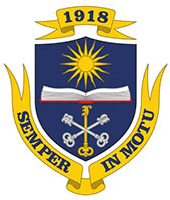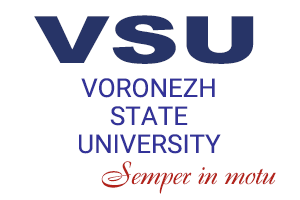On 15 March, Voronezh State University held an opening ceremony of the Sberbank Laboratory of Artificial Intelligence in its main building. Its functions will contribute to the existing IT infrastructure at the university and will make it possible to solve a wide range of tasks relating to artificial intelligence, information security, to develop new technologies of information processing and machine learning.
“This laboratory opened in cooperation with Sberbank is the fifth and the final component of the system of the Voronezh Regional Centre for Artificial Intelligence which has been established at VSU. It includes five laboratories united by the supercomputer centre. A lot of work has been done at the university with the support of our partners. Importantly, its main goals are to implement educational programmes, conduct world-class research, and to solve practical tasks for the benefit of industrial partners. The cooperation between Sberbank and VSU makes it possible to solve globally important tasks which will keep the Voronezh region at the forefront of the advanced areas of science and specialist training,” said VSU Rector Dmitry Endovitsky.
He also emphasised that Research and Education Centre under the working title “Digital Innovations in Economics” is being established in the region on the initiative of the governor Alexander Gusev and the opening of the Laboratory of Artificial Intelligence demonstrates Sberbank’s involvement in it.
“We are ready to employ VSU graduates in Voronezh and other regions, too, because Sberbank needs IT specialists. The new laboratory will help students enhance their skills and try to create new models which will be developed into start-ups. This will secure our leadership in technologies with the due account of the regional profile, and will make the Voronezh region the leader with its own IT cluster in Russia,” said Alexander Zakurdaev, Deputy Chairman of the Central Black Earth Branch of PAO Sberbank.
Denis Skrebets, Deputy Chairman and the Head of the main Voronezh regional office of the Central Black Earth Branch of PAO Sberbank, noticed that education is an inseparable and important part of career and excellence development:
“No one can make a person a genius, however, we can make a talented person’s studentship a worthwhile experience, and that’s what Sberbank can do as well. To my mind, this laboratory will contribute to the development of many talented people. It is an important event for VSU, Sberbank, and Voronezh as a whole.
In the future, the Sberbank Laboratory of Artificial Intelligence at VSU can become an experimental platform used to test the interaction between high technologies, universities, and business at the regional level. The master’s programmes taught at the centre include: machine learning and intelligent systems, data analysis and machine learning in financial technologies, intelligent information technologies, and mathematical foundations for computer graphics.
The university and the bank have developed and signed a cooperation roadmap. The opening of the Laboratory of Artificial Intellect and Big Data Analysis at Voronezh State University has become a step in its implementation.
“We already have a Machine Learning Laboratory at the Faculty of Applied Mathematics, Informatics, and Mechanics equipped with modern graphics processors which can speed up calculations by hundreds. From the very beginning of its work, we faced the problem of mass data storage closely connected with artificial intelligence systems. That is why when we were choosing the equipment for the Laboratory of Artificial Intelligence, we paid special attention to a powerful storage system. Now, we will be able to store up to four petabyte which is quite a lot even by today's standards. To compare, one petabyte is about one billion photos and 500 billion pages of text information,” said Professor Irina Kashirina from the Faculty of Applied Mathematics, Informatics, and Mechanics.
Students can choose from the most advanced areas of development of artificial intelligence: data mining, big data analysis, modern neural network technologies, building machine learning systems with Python, recommender systems and data mining, computer vision, and natural language processing.






